
Natural Dog Anxiety Remedies: A Comprehensive Overview
Dogs are known for being man’s best friend, but what happens when your furry companion is feeling anxious? It can be tough to see your pup struggling, but fortunately, there are many dog anxiety remedies available. In this article, we’ll explore when to consult a veterinarian for your dog’s anxiety issues, as well as some training techniques and strategies, natural remedies, and the benefits of physical exercise and mental stimulation in reducing dog anxiety.
If you’ve noticed that your dog is displaying symptoms of anxiety, such as excessive barking, destructive behavior, or aggression, it’s important to take action. While some level of anxiety is normal for dogs, excessive anxiety can be a sign of a more serious underlying condition. By using the right dog anxiety remedies, you can help your furry friend feel more calm and comfortable.
Herbal Solutions for Dog Anxiety
Firstly, natural dog anxiety remedies include herbal options. Among the most popular herbs are:
- Valerian root
- Chamomile
- Passionflower
These herbs can help calm an anxious dog. However, always consult a vet before administering herbal treatments.
Aromatherapy and Essential Oils
Aromatherapy is another natural dog anxiety remedy. Various essential oils, such as lavender and chamomile, can soothe a stressed canine. To use:
- Diffuse the oils in a well-ventilated room
- Apply diluted oils to a dog’s collar
- Use a pet-friendly calming spray
Always monitor your dog’s reaction to essential oils.
Calming Dog Treats and Supplements
Supplements and calming treats are available for anxious dogs. Ingredients like L-theanine and tryptophan can promote relaxation. When selecting a product:
- Choose high-quality, natural ingredients
- Consult your vet for recommendations
- Follow the suggested dosage
Remember, results may vary between dogs.

Calming Dog Apparel
Some dog anxiety remedies involve special apparel. The most common are:
- Anxiety wraps or vests
- Calming collars infused with calming pheromones
These items can provide a sense of security for stressed dogs.
Massage and Acupressure
Gentle massage and acupressure can help relax anxious dogs. By applying pressure to specific points on a dog’s body:
- Tension is released
- Circulation improves
- Stress levels decrease
It’s essential to learn proper techniques before attempting these dog anxiety remedies.
Pheromone Diffusers and Sprays
Lastly, pheromone diffusers and sprays can help calm your dog’s anxiety. Synthetic pheromones mimic those produced by mother dogs to comfort puppies. To use these products:
- Plug in a diffuser near your dog’s favorite spot
- Spray the pheromone solution on bedding or toys
- Replace the diffuser as needed
Remember, patience is vital when trying new dog anxiety remedies.
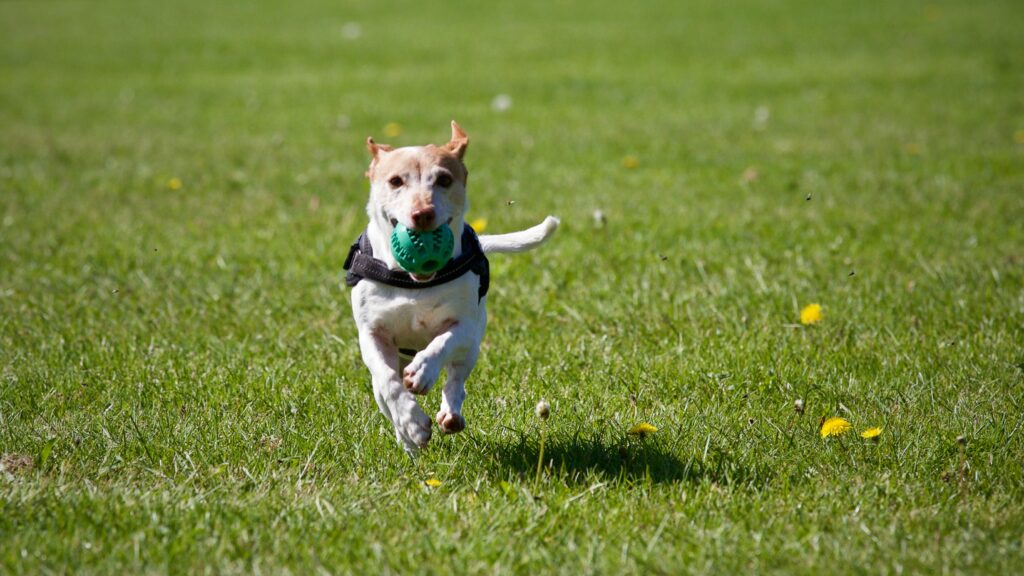
The Benefits of Physical Exercise in Reducing Dog Anxiety
Importance of Exercise for Anxious Dogs
Physical exercise is a critical component of dog anxiety remedies. Regular activity provides several benefits:
- Releases pent-up energy
- Reduces boredom
- Promotes relaxation
- Improves overall health
Therefore, ensure your dog gets adequate exercise daily.
Types of Exercise for Anxious Dogs
Different exercises can help alleviate anxiety. Consider these activities:
- Walking or jogging
- Fetch games
- Swimming
- Dog park visits
Incorporate a variety of exercises to keep your dog engaged.
Exercise Duration and Frequency
Finding the right balance is crucial for effective dog anxiety remedies. Consider these guidelines:
- Aim for at least 30 minutes of exercise daily
- Adjust based on your dog’s breed, age, and size
- Monitor your dog for signs of fatigue
Remember, consistency is key for reducing anxiety through exercise.
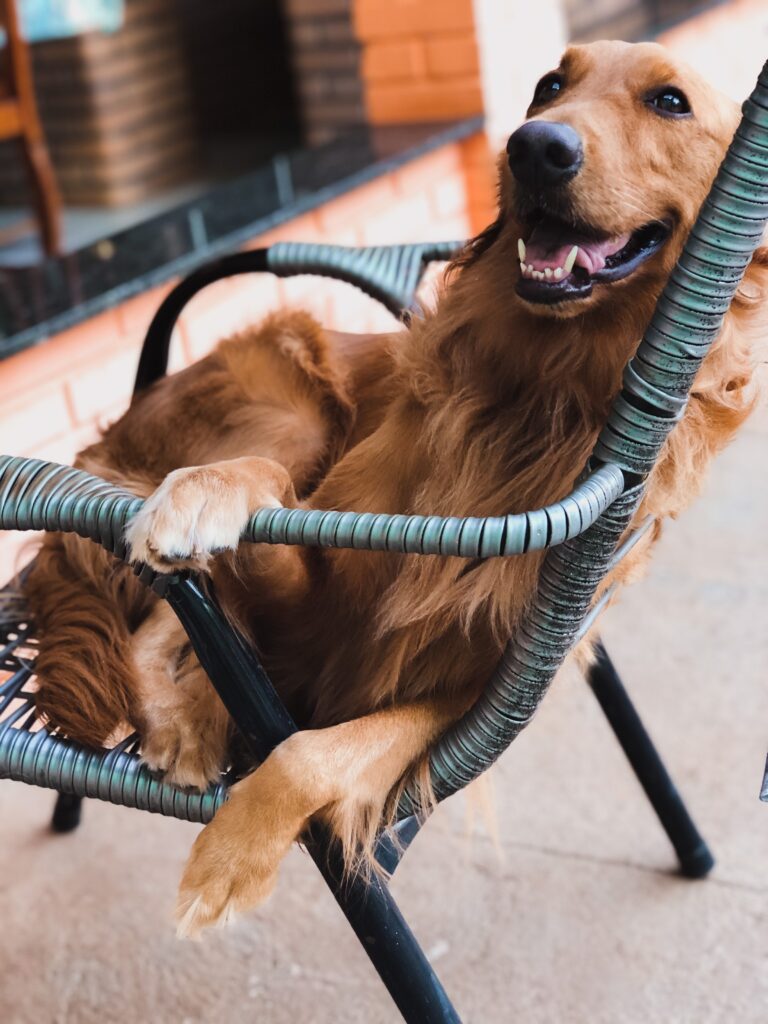
Customizing Exercise Routines for Your Dog
It’s essential to tailor exercise routines to your dog’s needs. Consider these factors:
- Breed-specific exercise requirements
- Age and health conditions
- Individual temperament and preferences
Understanding your dog’s unique needs will help you create an effective exercise plan.
Importance of Routine and Predictability
Routine and predictability are crucial for dog anxiety remedies. Establishing a consistent schedule:
- Provides a sense of security
- Reduces stress
- Helps your dog anticipate activities
Maintain a regular exercise routine to optimize anxiety reduction.
Monitoring Progress and Adjusting as Needed
Continuously observe your dog’s behavior and make adjustments when necessary:
- Increase or decrease exercise intensity
- Modify activities based on your dog’s response
- Seek professional advice if anxiety persists
Regular evaluation will ensure the exercise routine remains effective for reducing anxiety.
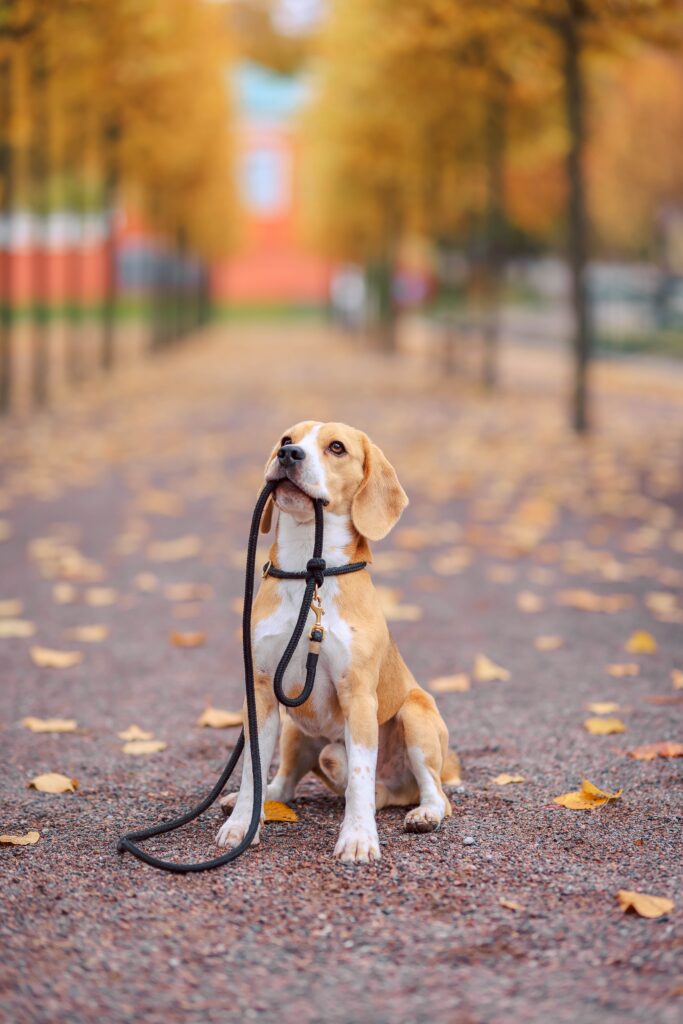
The Role of Mental Stimulation in Alleviating Canine Stress
The Power of Mental Stimulation for Canine Stress Relief
Mental stimulation is a vital component of dog anxiety remedies. Challenging your dog’s mind can:
- Distract them from stressors
- Provide a sense of accomplishment
- Build confidence and resilience
Experiment with various mental exercises to determine what works best for your dog.
Interactive Puzzle Toys for Canine Enrichment
Interactive puzzle toys can significantly alleviate canine stress. These toys:
- Engage your dog’s problem-solving skills
- Offer a rewarding experience
- Occupy their attention and reduce anxiety
Choose toys that match your dog’s skill level and preferences.
Incorporating Obedience Training and Brain Games
Incorporating obedience training and brain games helps reduce anxiety. These activities:
- Build a stronger bond with your dog
- Improve communication and understanding
- Encourage focus and mental engagement
Include obedience training and brain games in your dog’s daily routine for maximum benefits.

The Importance of Socialization for Mental Well-Being
Proper socialization is crucial for reducing anxiety. Exposing your dog to various experiences:
- Helps them become more adaptable
- Enhances their confidence in new situations
- Reduces the likelihood of stress-related behaviors
Socialize your dog early and consistently for optimal mental well-being.
Tailoring Mental Stimulation to Your Dog’s Personality
Tailoring mental stimulation to your dog’s personality is essential in dog anxiety remedies. Consider your dog’s:
- Breed and natural tendencies
- Individual likes and dislikes
- Energy levels and limitations
Design activities that cater to your dog’s unique needs for the most effective stress relief.
The Long-Term Benefits of Regular Mental Stimulation
Regular mental stimulation offers long-term benefits for anxious dogs. Consistent mental engagement:
- Promotes overall mental health
- Reduces boredom and destructive behaviors
- Fosters a well-adjusted, happier pet
Commit to providing mental stimulation daily to support your dog’s emotional well-being.
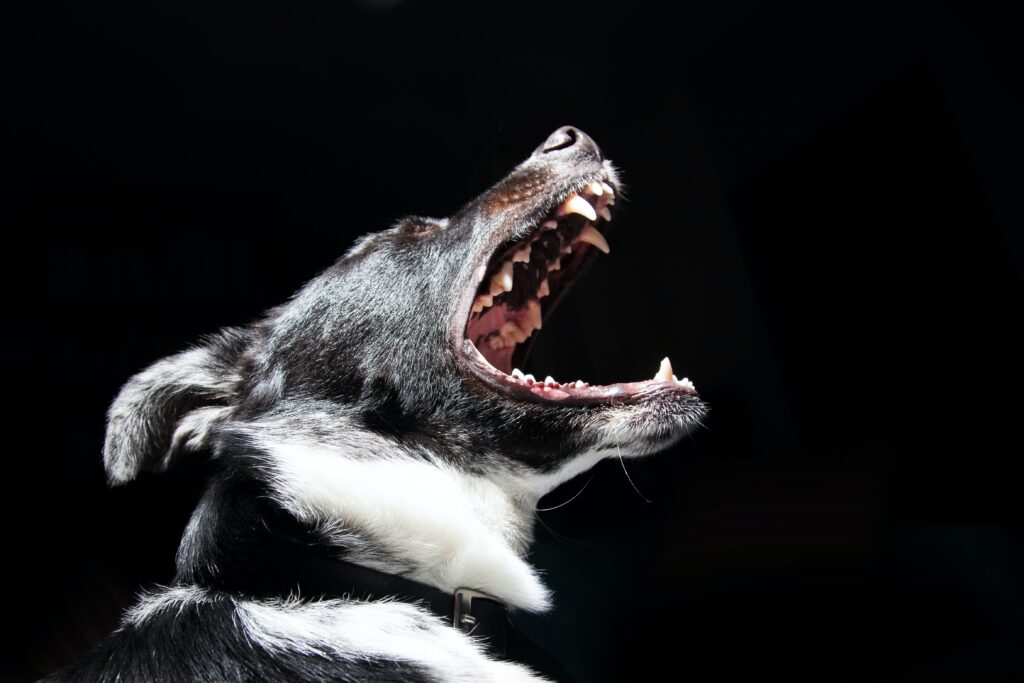
Training Techniques and Strategies for Managing Dog Anxiety
Positive Reinforcement Training for Anxious Dogs
Positive reinforcement training is a crucial component of dog anxiety remedies. To implement this approach:
- Reward your dog for desirable behaviors
- Ignore or redirect undesirable actions
- Use treats, praise, or toys as rewards
Consistent positive reinforcement helps build your dog’s confidence and reduces anxiety.
Desensitization and Counterconditioning Techniques
Desensitization and counterconditioning techniques are essential in managing dog anxiety. To employ these methods:
- Gradually expose your dog to anxiety triggers
- Pair exposure with positive experiences
- Monitor your dog’s reactions closely
These techniques can effectively change your dog’s emotional response to stressors over time.
Creating a Calm Environment and Routine
A calm environment and routine contribute significantly to dog anxiety remedies. To create a serene space:
- Maintain a consistent daily schedule
- Provide a designated safe spot for your dog
- Limit exposure to loud noises and disruptions
A predictable and soothing environment helps reduce your dog’s anxiety levels.
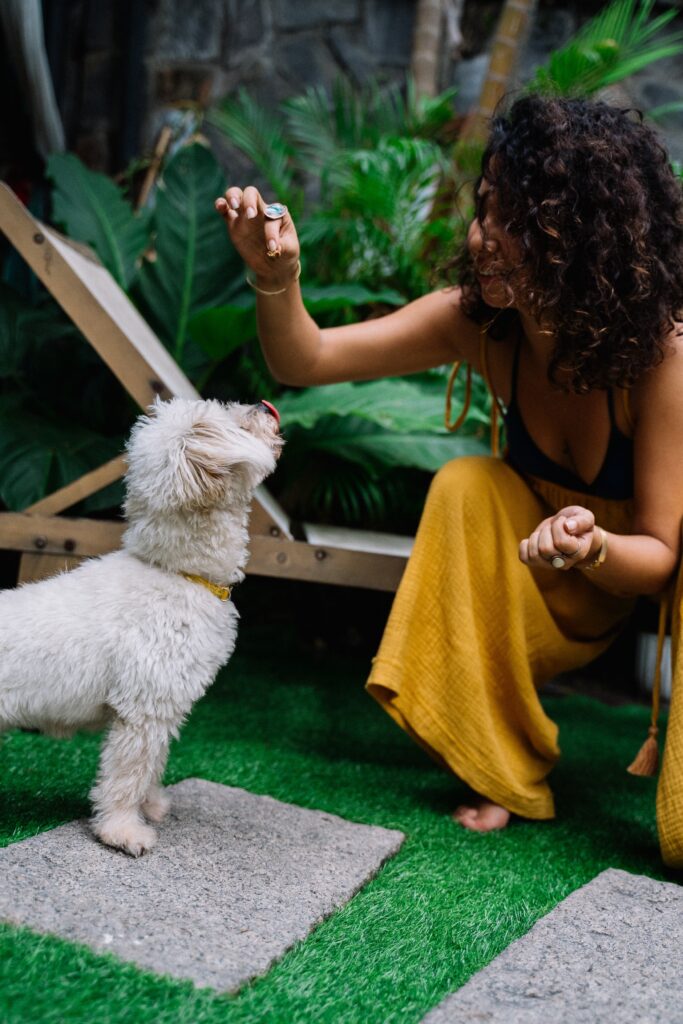
Utilizing Calming Signals and Body Language
Understanding calming signals and body language is vital in addressing dog anxiety. To use these signals effectively:
- Observe your dog’s body language closely
- Learn common calming signals such as yawning, lip licking, and turning away
- Mimic calming signals to communicate with your dog
Using calming signals helps your dog feel more secure and understood, reducing anxiety.
Teach Your Dog Relaxation Techniques
Relaxation techniques can be beneficial dog anxiety remedies. To teach your dog relaxation:
- Train your dog to lie down and stay on command
- Practice deep breathing to encourage relaxation
- Use calming massages or gentle stroking
Teaching relaxation techniques helps your dog cope with stress and anxiety more effectively.
Seek Professional Help for Training
Sometimes, professional assistance is necessary to manage dog anxiety. When seeking a trainer:
- Look for certified dog trainers specializing in anxiety
- Choose trainers using positive reinforcement methods
- Observe a training session before committing
A professional
trainer can provide tailored techniques to address your dog’s anxiety effectively.
Gradual Desensitization and Counterconditioning
Gradual desensitization and counterconditioning can effectively manage dog anxiety. To implement these methods:
- Identify the anxiety triggers for your dog
- Expose your dog to the trigger at a low intensity
- Reward your dog for remaining calm in the presence of the trigger
These methods help your dog associate positive experiences with previously anxiety-inducing stimuli.
Socialization and Confidence Building
Socialization and confidence building are essential dog anxiety remedies. To encourage socialization:
- Expose your dog to new environments, people, and animals gradually
- Reward positive interactions and confidence in new situations
- Attend organized socialization classes
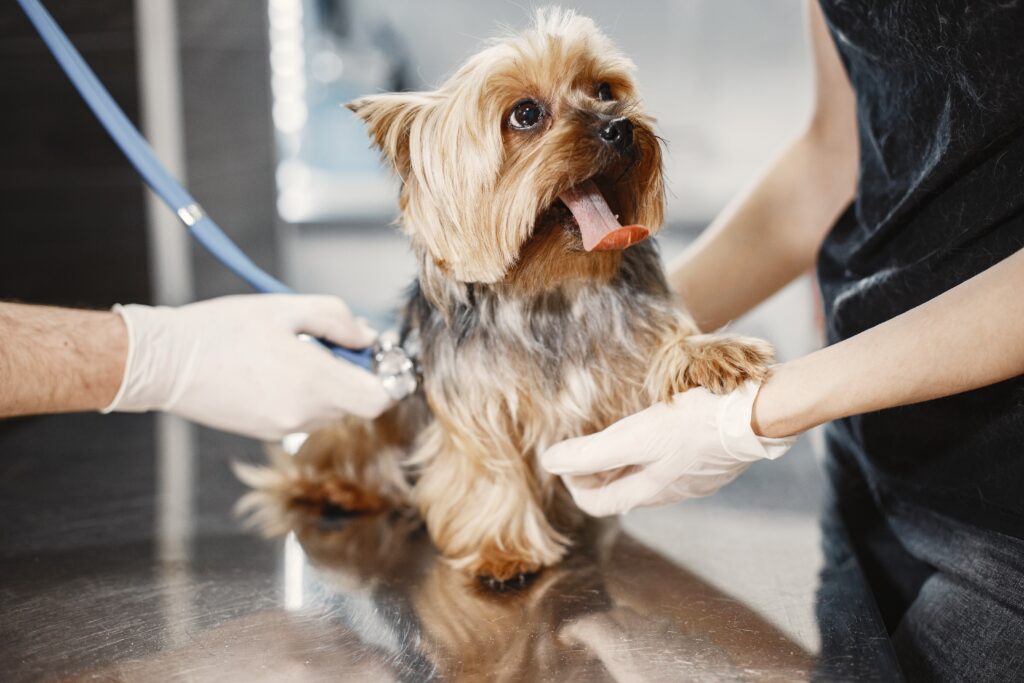
When to Consult a Veterinarian for Your Dog’s Anxiety Issues
Recognizing Signs of Severe Anxiety
Before seeking veterinary assistance, it’s crucial to identify severe anxiety signs. Watch for:
- Excessive panting or drooling
- Pacing or restlessness
- Destructive behaviors
- Aggression
If these signs persist, consult a veterinarian for dog anxiety remedies.
Assessing the Effectiveness of Home Remedies
It’s essential to monitor your dog’s progress with home remedies. To assess their effectiveness:
- Keep a journal of your dog’s behavior
- Note improvements or setbacks
- Review which remedies work best
If home remedies aren’t helping, consult a veterinarian for alternative solutions.
Considering Medication as a Last Resort
Sometimes, medication is necessary to manage severe anxiety. When considering medication:
- Discuss options with your veterinarian
- Research potential side effects
- Monitor your dog’s response to the medication
Medication can be an effective dog anxiety remedy when combined with other strategies.
Conclusion
Managing dog anxiety can be a challenging experience, but it’s important to remember that you’re not alone. By working with your veterinarian and trying different remedies and techniques, you can help your dog feel more at ease and improve their overall quality of life. Remember, a happy and healthy pup is a joy to be around, so don’t hesitate to seek help and support when needed. With the right care and attention, you and your furry friend can overcome any obstacle.